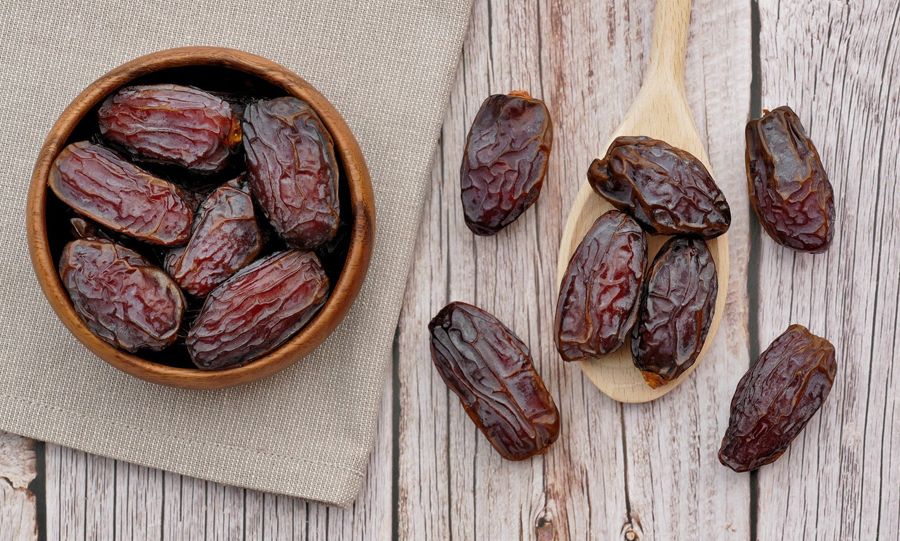Medjool dates are a sweet, juicy fruit that is native to Morocco and are just one of the hundreds of different varieties of dates. With a sweet caramel taste and a soft, chewy texture, Medjool dates have a long link to royalty, earning them the nickname “the fruit of kings”.
Medjool dates are typically grown in warm climates and are high in vitamins and nutrients which are believed to fend off fatigue and boost energy, whilst also contributing to other health benefits. Medjool dates are easily available to buy and can be included in your diet. They’re a great snack and their natural sweetness makes them a fantastic substitute for baking and cooking.
But, what are Medjool dates and why are they so beneficial to our health?
What Are Medjool Dates?
There are over 1,500 different date varieties grown across the world. They are grown in warm climates, including the Middle East, California and African regions and are one of the most popular fruits thanks to their large size, rich flavour and soft texture.
Many people don’t realise that Medjool dates are actually a fresh fruit. Medjool dates are not a dried fruit – many people get confused with the dates and raisins that you can buy from the baking aisle in most supermarkets. Medjool dates are very sweet, with a caramel taste. The dates have natural sugar crystals in them, which is what gives them a slight shimmer on the skin. When you bite into one, you’ll notice the natural flavours of honey, cinnamon and caramel. It’s no surprise that Medjool dates are a much loved sweet treat across the world!
Where Are Medjool Dates Grown?
A lot of people enjoy Medjool dates, but don’t quite realise the growing process behind them. Medjool dates come from the Middle East and North African regions and play a huge role in many cultures in this diverse area of the world. Medjool dates are one of the world’s oldest and most cultivated fruit, with them being grown for around 6,000 years.
All Medjool dates are grown on date palm trees – very similar to coconut trees. The process of growing Medjool dates is known as a labour of love, as the process is very intense and it takes around 7 years for trees to start producing fruits. The process of harvesting Medjool dates starts from the picking of the dates from the date palm, and they are then cleaned, sorted and packaged straight away. There is no processing involved, and they are never dried.
Are Medjool Dates Healthy?
Medjool dates are a great way to add sweetness to your diet, without adding any additional sugar, but increasing your intake of natural vitamins and minerals. Sweet snacks often have very little nutritional value, however, with Medjool dates, this isn’t the case. They’re packed full of fibre, which can help you to feel fuller for longer and aid in weight management goals. Whilst Medjool dates can be high in calories if consumed in large amounts (they’re around 66 calories each), just a few dates a day can be enough to add to your overall health and diet. They’re low in fat and include nutrients such as potassium, copper, magnesium, iron and calcium.
How To Use Medjool Dates
Medjool dates are fine to be enjoyed on their own, but they can be used in cooking and baking. There is no wrong way to eat Medjool dates and they have many different uses. From adding to salads, using to sweeten curries and sauces or chopped up to add to a cake, if you need to increase sweetness in any bake or dish but want to avoid using sugar, then dates are a perfect substitute.
Where Can I Buy Medjool Dates?
You can buy Medjool dates from most supermarkets, however, here at Regal Foods, we have a range of quality dates that you can buy, including Medjool dates. You can shop our range of dates and snacks here!

